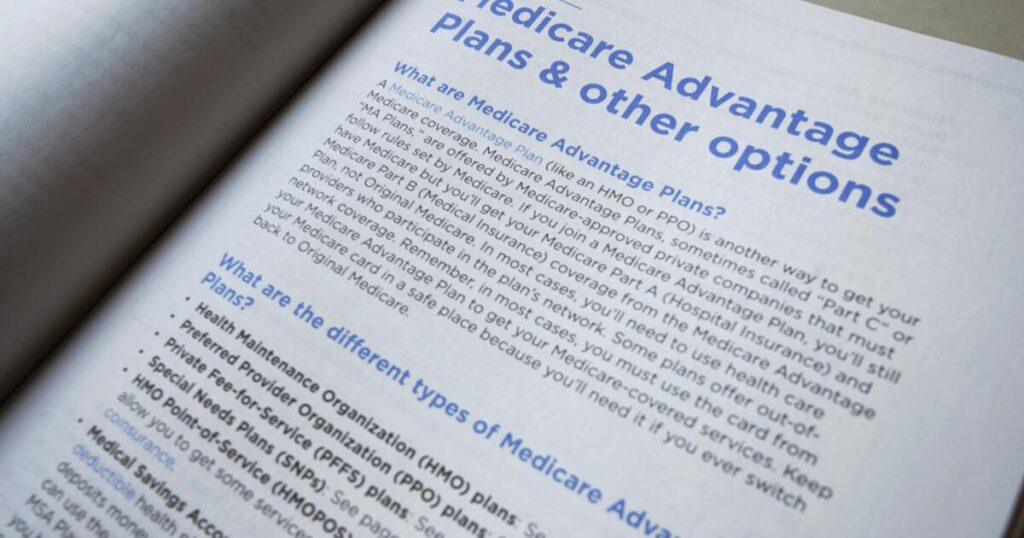About half of Medicare Advantage members left their plans by the end of five years, according to a 2023 study from Brown University School of Public Health.
Most of them switched to another Medicare Advantage plan but not necessarily because they liked Medicare Advantage. Going back to original Medicare can be difficult after you first enroll, because you may not be able to get a Medicare supplemental insurance plan, known as Medigap.
But for people with serious or chronic health conditions who have Medicare Advantage, limited provider networks and prior authorization requirements may make it difficult or expensive for them to get the care they need. It helps to understand your options.
When Medicare Advantage isn't the right plan
Medicare Advantage plans typically require members to get health care from in-network doctors and hospitals. Members may have a problem if their doctor goes out of network or if they want to see a specialist who doesn't take their plan.
Medicare Advantage plans may also require you to get approved before they will cover certain services or drugs.
Although most Medicare Advantage enrollees are in plans with a $0 premium, getting Medicare costs money, and Medicare Advantage plans can have an annual maximum of $8,850 in 2024.
Joan Giardini Russell, owner of Giardini Medicare Insurance Agency in Michigan, recalled a client who had a Medicare Advantage plan and developed cancer.
“He was maxing out his pocket year after year,” she said. “Then throw in prior authorizations, which he wasn't a fan of.”
When you can change plans
If you have Medicare Advantage and want to switch plans or return to Original Medicare, there are two annual opportunities: Medicare Open Enrollment from October 15 to December 7 and Medicare Advantage Open Enrollment from January 1 to March 31.
However, if you want to go back to original Medicare and you have health problems, you may not qualify for Medigap, which helps keep the cost of original Medicare down. In most states, after the initial Medigap enrollment period — during which you can purchase any plan from any insurance company, regardless of health condition — companies can deny you coverage.
“Everyone thinks open enrollment in the fall will save them,” Giardini Russell said, recalling a client with a Medicare Advantage plan who couldn't qualify for Medigap because of a heart condition.
“She said, ‘I thought in November you could change during open enrollment,’” Giardini-Russell said. “She had no way out.”
What are the exceptions?
There are two “trial rights” scenarios where someone with Medicare Advantage can switch back to a Medigap plan without a medical exam:
If you start with a Medicare Advantage plan when you first qualify for Medicare, you have 12 months to return to Original Medicare with any Medigap plan.
If you have a Medigap plan and drop it to try a Medicare Advantage plan for the first time, you have 12 months to go back to the original Medicare plan and the Medigap plan you dropped, as long as the company still sells it.
If you work with an insurance agent, he or she may also know of a Medigap company that will approve you based on your health.
“There are some that handle certain situations differently than others,” said Adam Hyers, an insurance broker and founder of Hyers & Co. Insurance Agency in Columbus, Ohio. “We maintain a list of people who are most likely to accept a client who is in the gray area.”
In four states, residents have the opportunity at least once a year to purchase a guaranteed-issue Medigap plan: Connecticut, Maine, Massachusetts, and New York. There are also strange exceptions: In 2022 and 2023, Blue Shield of California offered a “underwriting holiday” during which Californians could join Medigap Plan G without a medical guarantee.
In a worst-case scenario, moving out of your plan's service area gives you another chance to get guaranteed Medigap.
What if you can't get Medigap?
If Medigap isn't possible, you may have to find the best Medicare Advantage plan that fits your needs. Don't get sidetracked by the perks; Attention to doctors and drug coverage.
For guidance, contact the broker rather than the service providers directly.
“You want to talk to someone who is independent, who represents all companies,” said Cynthia Broem, founder and CEO of SIS Financial Group in Hoffman Estates, Illinois.
Ashford writes for the personal finance website NerdWallet. This article was distributed by The Associated Press.
